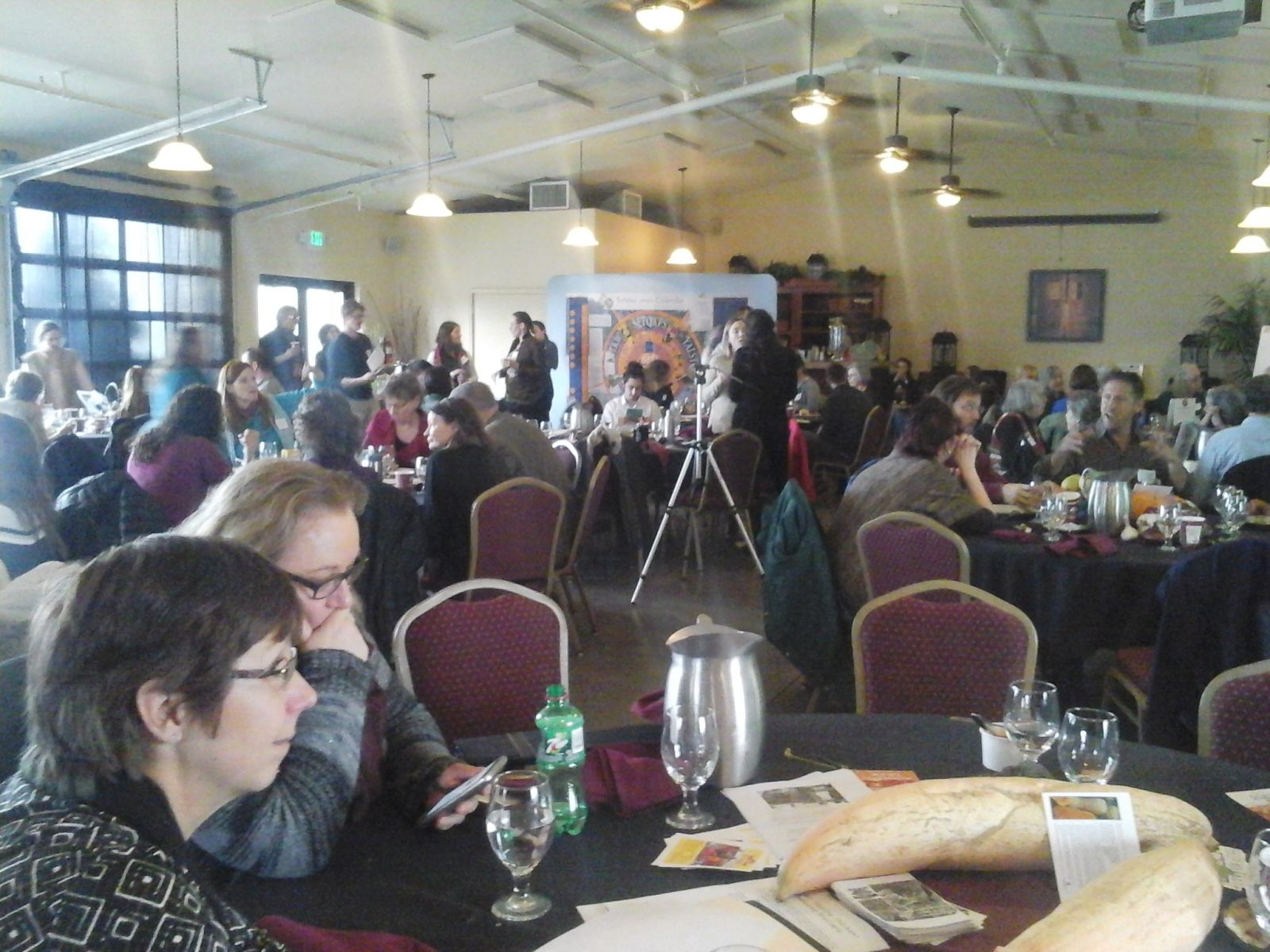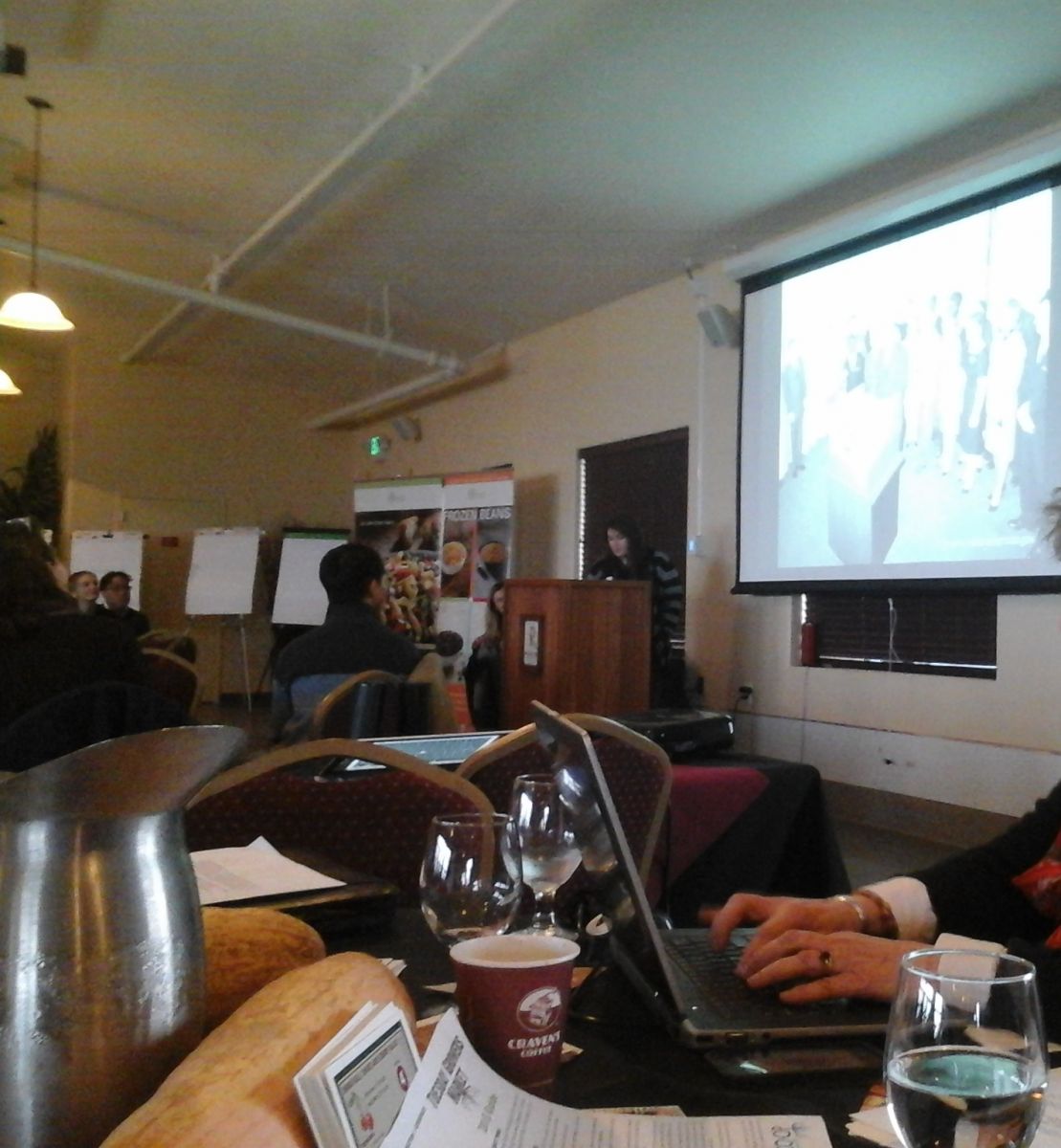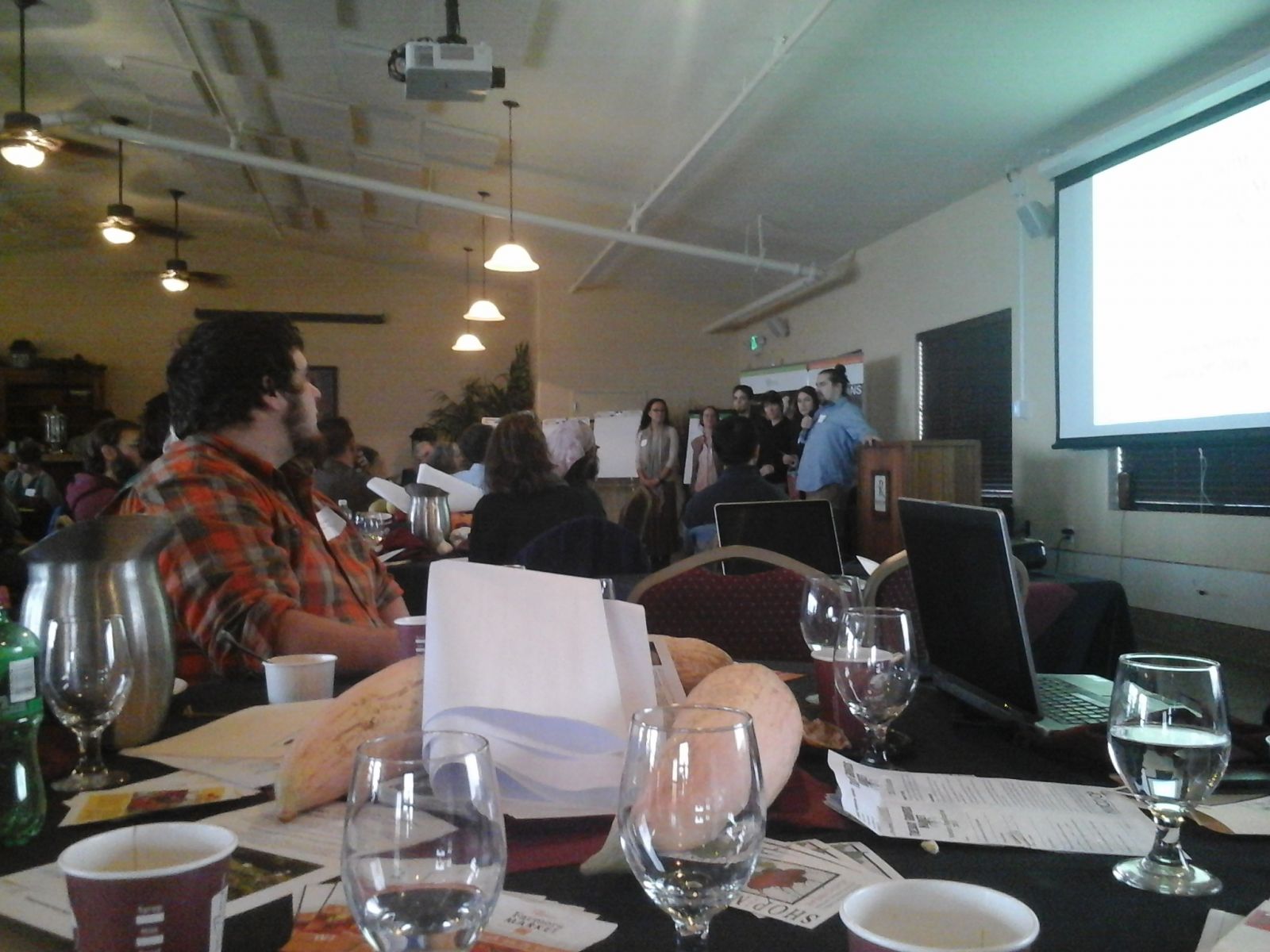Last Friday, we sent Allie, our Kitchen AmeriCorps VISTA, down to Pullman, Washington for an event called the Palouse-Clearwater Food Summit: Feeding Ourselves: Collaborations for Increasing Local Food Access. This event gave The Kitchen a chance to learn about efforts within part of Second Harvest’s service area happening to increase local access to fresh, local, and healthy food.

Many different presenters came to share their efforts and research for improving local food access. This included tribal leaders, professors, farmers, students, nonprofit leaders, and other advocates for change in this area. We were also all fed a delicious and local lunch of lentil burgers, salads, and fresh tomato soup.

One major effort we learned about happening in this area was the development of Mary’s Park in Pullman, Washington. Five acres of land was donated to the City of Pullman in order to increase urban agriculture and gardens within the urban environment. The City of Pullman is working with the Washington State University Center for Civic Engagement, agricultural groups, and classes within WSU to break ground on the park. This project is an effort to make an inclusive community space for residents of all abilities and ages to gather, play, and grow their own food in a public garden space. This project highlights the great strides we can make through Public and Private Partnerships in our community. For more information on this project, check out the City of Pullman’s website.

Another particularly interesting segment of the Food Summit was learning about efforts that the Coeur D’alene tribe has been making to through their One Sky/One Earth Food Coalition. Tribal members have been taking steps to create comprehensive changes to food access systems and food literacy in their community. Some of many features include community gardens, healthy options in corner stores, growing native crops, improving the structure of their farmer’s market. For more information about this impressive and local initiative, check out http://preventioninstitute.org/component/sbxmapper/article/416.html.

Overall, this was a great event because it highlighted the important role that collaboration has in increasing local food access and improving the health of our communities. Exchanging ideas, skills, and perspectives is an essential tool when it comes to creating change.
